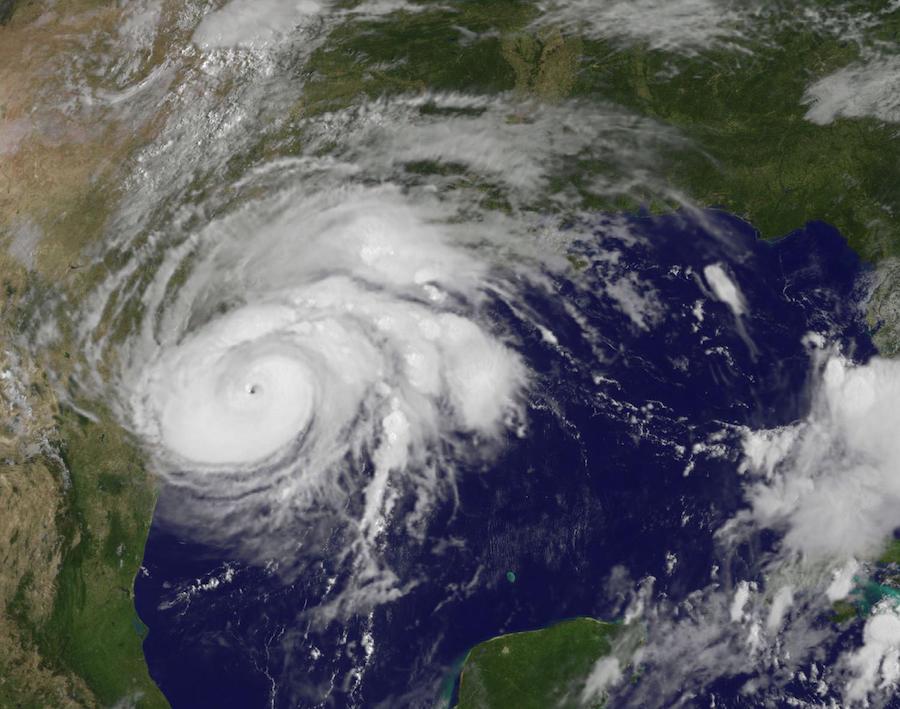After the Storms...the Long Road Ahead

Trauma Experts Weigh in on Right Path Ahead for Storm Victims
With Hurricane Harvey a few weeks in the past, and Hurricane Irma barreling through soon after, there is great need for volunteers to come in and render aid to those who were affected by these devastating natural disasters. Certainly, there will be much to clean up environmentally in the coming weeks, months, and even years, but there is also a great need for aid when it comes to helping those affected by the storm deal with the trauma they have faced.
In light of this tragedy, GSSW Professor Dr. Helen Harris, weighed in on what survivors of the storm may be facing.
“When people experience traumatic events, it can provoke a fight, flight, or freeze response to ensure survival,” she said. “Sometimes, however, the trauma response gets ‘stuck,’ and things that remind the survivor of the previous threat can provoke a response as though it is happening again.”
This is one important observation for those on the outside looking in to make when working with those dealing with trauma. She went on to say this cycle of recurring responses to past trauma can become post-traumatic stress responses.
“You may have heard of soldiers who experienced battlefield trauma who become triggered and hyper-aroused and alert with fireworks on the Fourth of July,” Dr. Harris said. “The trauma of the hurricane may include the actual storm event, the post-event flooding, the experience of rescue, or the experience of sheltering."
Dr. Harris cited two main therapies used to effectively help those dealing with ongoing trauma responses, namely Trust-Based Relational Intervention (TBRI) and Eye Movement Desensitization and Reprocessing therapy (EMDR). TBRI is designed to help children regain a sense of trust and security in the people around them and their environment after past traumatic events. EMDR is a multi-phase program that helps people deal with distress and trauma systems by modifying how they think about and connect with past traumatic experiences. Both are taught within Baylor’s Social Work programs.
She also emphasized the great importance of trauma-informed care, a framework for care that focuses on understanding, recognizing, and responding to various effects of trauma, in order to best help people.
“It is important we provide a sensitive and competent response to both previous and current trauma. For example, trauma-informed care includes asking the client ‘What happened to you?’ rather than ‘What is wrong with you?’” Dr. Harris said.
Even small differences in language like this can be crucial in aiding those dealing with trauma in recovering well.
Dr. Jim Ellor, another Baylor Social Work professor and trauma expert, also provided some thoughts regarding the effects of these hurricanes and disasters as a whole.
Dr. Ellor identified three main groups in which those dealing with trauma can be placed.
“First, we need to remember there are those with long histories of emotional challenges. Some may at one time or another had a mental health diagnosis, some have simply been coping with a depression or low-level anxiety issues,” Dr. Ellor said. “This group, when confronted with this new major anxiety of having their home blown away, will have twice the impact. They have the original impact of their emotional challenge, and now on top of that, they have the normal anxiety of the natural disaster to deal with.”
He went on, “There is a second group ... people who have a physical health challenge, who then encounter the disaster challenge. A person with, for example, high blood pressure may well be on medication …but when the stress [from a natural disaster] is added, then the blood pressure is impacted and this person now has twice the challenge.”
The third group he identified is “those who are simply dealing with the stress of the event."
“All three of these groups are primarily impacted by the event, but may require different kinds of assistance to get through it,” he concluded, acknowledging the diversity of experiences people dealing with trauma can have.
He also mentioned a fourth group made up of those with close friends and family who were affected by traumatic events like hurricanes Harvey and Irma.
“[T]his [group] is not personally threatened, but they live with a kind of secondary trauma … [they] feel badly that they are doing well while their friends and family are struggling,” Dr. Ellor said. Though this group may not have been directly impacted, this is a type of trauma the average person may be able to best relate to and understand.
It can feel daunting to think about recovery for those affected by these hurricanes and other traumatic events, but there are trained professionals who desire to help people persevere through their trauma and emerge even stronger.
“Folks impacted by trauma need to find others to talk to, maybe even a therapist, who can help them think through what is impacting their lives and how they can move forward,” Dr. Ellor stated.
It is important to realize that the mental and physical effects of recent hurricanes and other natural disasters such as the recent earthquake in Mexico or other storms in the Atlantic can continue for years, and there is certainly no shortage of communities that need continued volunteering, trauma-informed care, and plenty of prayer.
Of course, as a Christian university, we have great hope for recovery for individuals and communities affected. We must remain diligent in loving those around us and helping any way we can. Dr. Ellor ended with a word of hope: “Life is not always easy, but we live in God’s world, a place where we know that God is present. That is very good."
By Connor Watkins